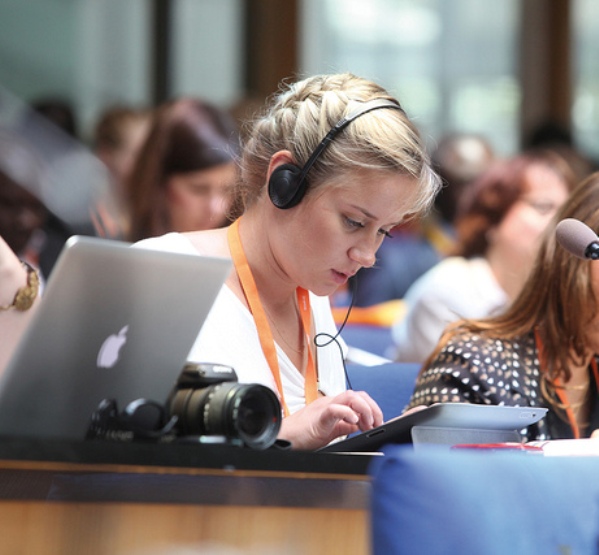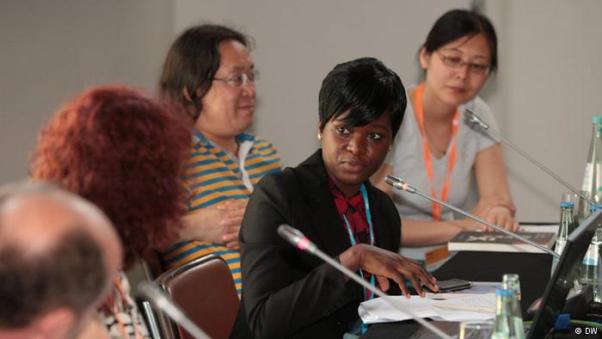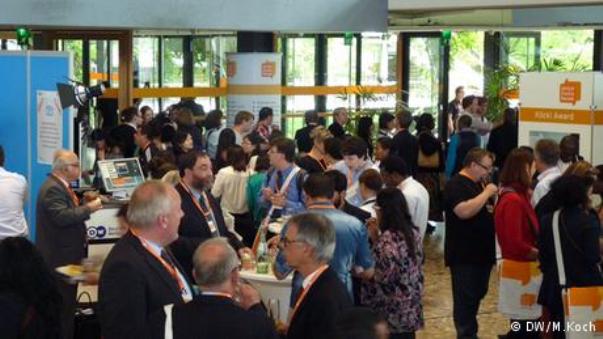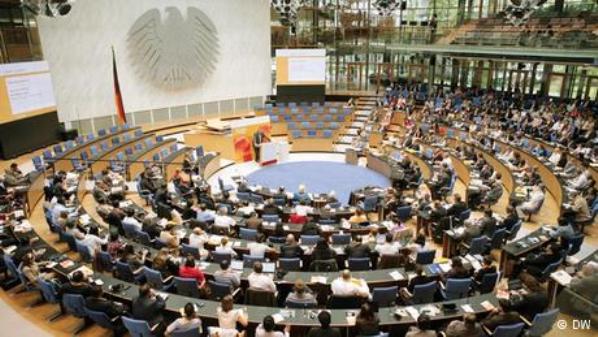Search Results for Tag: 2014 GMF
Protecting the fundamental rights of information and expression
The values of liberal democracy are firmly rooted in freedom of expression and information. These vital pillars of society however need to be protected as technology shifts the channels of information and new methods of control are applied. The current state of these fundamental rights in the digital world is on the agenda at the 2014 Global Media Forum.
The international human rights organization, Amnesty International, in cooperation with the German Institute for Human Rights, will cover these issues in a talk titled An ice age for privacy? The rights to free speech, information and privacy versus mass surveillance. The discussion will emphasize how privacy of information is essential to preserving freedom of expression by looking at examples such as Edward Snowden blowing the whistle on the NSA’s digital surveillance and exposing institutional violations of privacy. The talk also explores how to protect the media and whistleblowers and how much privacy must be exchanged in the name of security.
Reporters Without Borders will host a discussion on how digital technology enables journalists to reach sources and gather news more effectively while at the same time endangering their ability to keep that information secure. The talk titled strengthening freedom of information and source protection worldwide, will highlight methods used by journalists to protect their information while analyzing the motivations of so-called “enemies of the Internet”, who use digital technology for censorship rather than the diffusion of information.
Blogs have grown from being an informal method of online expression into a real force in sharing information, especially outside traditional channels which in certain cases are censored and controlled. In a talk hosted by IREX Europe titled The rise of citizen journalism and its impact on traditional journalism in Russia, the state of the blogosphere will be analyzed with a focus on Russian bloggers. Special emphasis will be placed on the Internet as a “digital battlefield” with new laws being used to restrict online freedom of information as online activists fight to be heard.
Next week we will look at selected examples of specific techniques and technologies that are being used in digital media and journalism.
Exploring security in the digital world
As the Internet gradually evolves into the primary global communication medium, issues of data protection and control are becoming critically important. For journalists and the media, the importance of preventing censorship and protecting sources is a front line issue in the digital age. At the 2014 Global Media Forum, these issues will be explored by the experts and those affected.
Exploring a provocative look cyber security is a talk organized by the Bonn International Center for Conversion (BICC) titled Western surveillance technologies and “ungoverned spaces” – Challenges to protect (media) freedom. The discussion explores how governments in collaboration with major western telecommunication companies act as agents of surveillance and censorship which are seeking to control information online. BICC says companies like Nokia and Ericsson are among those providing the technology which is used by oppressive governments for censorship and surveillance and that western governments are also exploring invasive ways to collect information online.
Coming from the perspective of a major telecom provider is a panel discussion moderated by the head of cyber and data security at Deutsche Telekom titled: Caught in the web – The media as both victim and perpetrator alike. The panel will explore state of the art techniques used to provide online security while outlining the latest challenges faced by media outlets in a dangerous digital world. The discussion will emphasize the unique status of media outlets as a target for hacking and cyber attacks from the insider perspective of an infrastructure provider.
Another angle of the issue is covered in a discussion hosted by the Electronic Frontier Foundation (EFF) titled: Citizen privacy and data protection: digital security training for social media activists and dissidents. The talk explores how activists, dissidents and even journalists are often the primary targets of digital surveillance. During the talk, experts from EFF will demonstrate simple techniques journalists can use to protect themselves.
Next week we will showcase a selection of events at the Global Media Forum dealing with the interplay between digital media and fundamental rights and social development.
Using digital media to ignite and organize public protest
The power of modern communication is being felt around the world, particularly in the form of organizing public protest. What is the role of the media? Both traditional and new media affect the dynamics of how protest movements are formed and publicized.
At this year’s Global Media forum, a panel discussion organized by the international news agency Pressenza titled Big media vs. social media in the global, nonviolent and humanist revolution, will focus on how protests are organized from the ground up by using social media. The talk will emphasize how social media fosters effective forms of non-violent protest. Speakers include a member of the Occupy Wall Street movement and Pressenza bureau chiefs.
Covering another angle, the global activism network, Avaaz, will be sharing some of their secrets and networking strategies in a panel discussion: The secret of mobilizing 34 million people. Avaaz helps local issues gain global recognition by using the power of community-powered politics. The discussion will shed light on where Avaaz wants to go in the future and on best practices in creating positive change through community activism.
The international campaigning and advocacy agency One, will be also host a discussion: How digital activism can help achieve real change. The talk will feature insight on how digital petitions can translate into tangible action and how online activism combined with traditional campaigns can be particularly effective.
The 2014 DW Global Media Forum is starting soon and there will be a rich variety of experts and thinkers gathering in Bonn who represent organizations from all over the world. In the weeks leading up to the Global Media Forum, we’ll give you a sneak preview of the partners, issues and hidden gems you can look for at this year’s conference. There is an intriguing variety of issues that will be discussed.
Next week we will be previewing three further Global Media Forum events on cyber security and data protection in the oft-perilous digital world.
You can find all information on the Global Media Forum here.
Preview of the guest list for the 2014 Global Media Forum
The 2014 DW Global Media Forum (GMF) will focus on the transformative power of the Internet and its effect on modern media, governance and political participation. A collection of intriguing individuals active in media and government will provide insight, understanding and shed new light on these critical issues.
Secretary General of the Council of Europe, Thorbjørn Jagland ,will be delivering a keynote speech following opening remarks from DW Director General Peter Limbourg. Also attending as a special guest will be the Egyptian political satirist Bassem Youssef, host of the widely-popular and controversial comedy news show El Bernameg. Other special guests include German Foreign Minister, Dr. Frank-Walter Steinmeier and humanitarian activist Auma Obama.
The Media Summit at the GMF will get to the core of the issue at hand with a panel of distinguished individuals from German and international media. Delivering a keynote speech will be the CEO of Axel Springer Germany, Mathias Doepfner. Panelists will include Peter Horrocks, Director of BBC World Services Group and Director General of Al Jazeera Media Network, Dr. Mostefa Souag.
Another highlight will be a panel discussion on transatlantic relations with panelists that include Senior Editor for Foreign Policy at the Sueddeutsche Zeitung, Stefan Cornelius, Editor-in-Chief of RTL television, Peter Kloeppel and DW Chief Political Correspondent, Melinda Crane.
You can see the entire guest list here.








Feedback